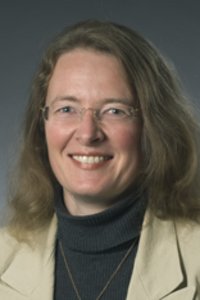
Associate Professor of Japanese and Global history at Aarhus University, Denmark. Previously, United Nations International Staff and, currently, spokesperson for the Association of Development Researchers in Denmark. Research interests: history of global networks, human resource development, and Japan in Africa.
My specific research interest in this project is threefold: 1. Applying my former experience and theoretical interests in transdisciplinary research, 2) dislodging port and shipping lines from national histories, and 3) the dynamic history of shipping lines as they are affected by timing related to global trends in technologies, disaster alleviation, and individual decisions.
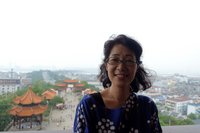
Born in Japan, educated at Kobe University and Doctor from Nichibunken (International Research Center for Japanese Studies), Hirai started a career from the EurAsia Project on Population and Family History 1995-2000, and has developed it at Cambridge Group for the History of Population and Social Structure. Now her research focuses on diversity in modernization patterns of family in Japan and East Asia, migration, contemporary international marriage in East Asia, and Spanish influenza in the beginning of 20th century in Kobe. In particular, she feels involved various aspects effected from increase and decrease of population. One of her findings will be published in 2021.
(Ochiai Emiko and Hirai Shoko eds., Japanizing Japanese Families: Regional Diversity and the Emergence of a National Family Model through the Eyes of Historical Demography, Brill)
About the EurAsian Project: http://www.fl.reitaku-u.ac.jp/pfhp/eap/index.html
Hirai’s website: https://www.sociokobe.com (in Japanese)
http://www.lit.kobe-u.ac.jp/english/faculty/shoko-hirai.html (in English)
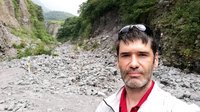
Born in France, educated at Sorbonne University and Doctor from Paris 7 D. Diderot University, C. Gomez has developed a career living and working in South-East Asia, New Zealand and now in Japan, where he investigates climate change hazards and disaster risk with a focus on debris-flow. In the European University tradition, he is also reflecting on climate-change and disaster-risk related questions of ethics, philosophy and political theories.
Research interest related to this project:
During Roman Antiquity, the Roman Galley were manned by the slaves or indigents with little or no other choices, and the tradition continued during the modern times of Western Europe, for instance in the Mediterranean sea in the 16th to 18th Century, notably because slaves were readily available in the ports of the old Mare. In the French language, being sent to the galley was a prison-till death sentence and it is still an idiom of the language: “c’est la galere”. Today, from cruise- to cargo-ships, contemporary “slaves”, perceived- and made-indigents still man the floating prisons. In a framework based on Foucault’s reflection of prisons, on power-relations and ethics, I am interested in the meaning of ships, shipping lanes and being on a ship in terms of power-relations between states, on the relation between the states and citizens (their own and others), and how this framework is articulated in terms of ethical theories, especially because some of those status-quo frameworks are being jostled by pirates - it is a tradition -, by arising new political powers, and by climate change.
Websites:
https://www.researchgate.net/profile/Christopher_Gomez3
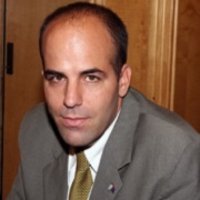
Ehud Gonen is a Research fellow at Haifa Maritime Policy and Strategy Research Center and PhD candidate at the Department of Asian Studies at the University of Haifa. Ehud held the position of Senior Fellow Researcher at the Harold Hartog School of Government & Policy, Tel Aviv University. He received an MA in International Relationship from the Hebrew University (2000) and a BA in Economics and Psychology from the University of Haifa (1996). Ehud served as a Diplomat (Israel Trade Commissioner) to Singapore (2000–2004) and to Australia (2008–2012) as well as the chief economist of the foreign trade administration, Israeli Ministry of Economy (2012–2016). Ehud is the editor of ‘Israel Maritime evaluation’ since 2016, A yearly publication by the university of Haifa.
Area of research: OFDI (Outgoing Foreign Direct Investment) from China into the Sea-Port sector under China Belt & Road Initiative (BRI). The research reviews the response of recipient-countries to China’s OFDI in the port sector and its uniqueness.
The scope of the Chinese investments, the sectors its focus, and the concerns about the motivation behind them evoke strong reactions in the recipient countries. The direction of the countries’ response (positive or negative), the intensity of the reaction, the factors that express it, and the mechanisms that activate it (internal politics, economic relations, and so on), are all influenced by a series of factors and characteristic that their existence, strength, and settlements change between country to country.
HMS website: https://hms.haifa.ac.il/index.php/en/
personal social media (hebrew):
https://www.linkedin.com/in/udi-gonen/detail/recent-activity/

Dr Carmela Lutmar is a researcher and instructor in the Division of International Relations in the School of Political Sciences at the University of Haifa. She holds an MA in Peace Studies from the University of Notre Dame, and received her PhD from New York University (2004). Dr. Lutmar was a research associate, and Lecturer at the Woodrow Wilson School at Princeton University (2005-2009). Her research interests include leadership, maritime security, regime changes, mediation in civil wars, and postwar governance in war torn societies. Major publications include a book on Leadership Changes and Regional Stability. (with Lesley Terris), Rowman and Littlefield Publishers (forthcoming in 2021), an edited volume on Peacebuilding in the Asia Pacific (with James Ockey), Palgrave- Mcmillan Publishers (forthcoming in 2018), and an edited volume Regional Peacemaking and Conflict Management: A Comparative Approach, Routledge (with Benjamin Miller, 2015) as well as various articles on leadership change such as “Leadership Changes and Civil Wars Agreements: Exploring Preliminary Links,” Peace Economics, Peace Science, and Public Policy 22(4): 439-449 (with Lesley Terris, 2016), “Israel’s Foreign Aid to Africa and UN Voting: an Empirical Examination”, Peace Economics, Peace Science, and Public Policy 25(4): 1-7 (with Leah Mandler, 2019), “Israel’s Foreign Assistance and UN Voting: Does it Pay?”, Israel Studies, 25(1): 99-121 (with Leah Mandler, 2020), and a forthcoming article (with Leah Mandler) in Israel Affairs “Birds of a feather vote together? – Patterns in the EU and Arab League UNGA Voting on Israeli Resolutions”.
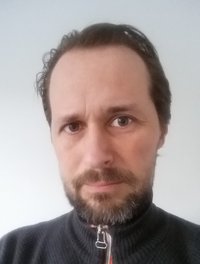
Anthropologist with a PhD from Copenhagen University. My current research interests include humanities-based approaches to value creation and the dynamics between formalized organizational structures and interpersonal agency. In my recently completed PhD dissertation I have studied the commodity-chain of cocoa in Ghana with particular focus on value generating activities among actors operating on the fringes of the formally established cocoa business entities. I have previously since the early 2000s worked with social development issues in Ghana, first in the context of NGO projects in Northern Region, and later on as a student intern with the Danida business sector support programme at the Danish Embassy in Accra from 2008-09.
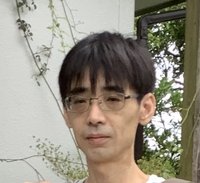
Born in Japan, Doctor from Osaka City University, T. Haraguchi started his career as JSPS PD Researcher. He has engaged in geohistorical study of Kamagasaki located in Osaka, known as one of the biggest day-laborer concentrated areas in Japan, and he has published Cry of the City (Kyoto: Rakuhoku Publisher) in 2016. He also engaged in surveys on gentrification and translated Neil Smith's New Urban Frontier Gentrification and the Revanchist City into Japanese (Kyoto: Minerva Publisher) in 2014. Now, his research focuses on laborers’ geohistory of Kobe Port and a theoretical study on containerization, logistics and urbanization.
Website:
https://researchmap.jp/7000003983?lang=en
http://www.lit.kobe-u.ac.jp/english/faculty/takeshi-haraguchi.html